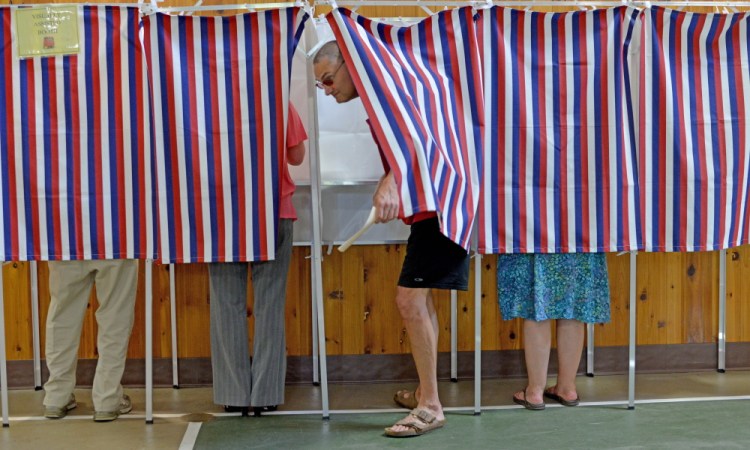Voters in Regional School Unit 18 signaled their approval of a $34.4 million spending plan on Tuesday, when the budget was approved in a ballot referendum by a majority in four out of the five towns in the district.
The ballot referendum Tuesday was the second time in a little over two months that voters in the school district have gone to the polls. On May 18, residents rejected a $34.7 million proposal, forcing the school board to implement almost $293,000 in cuts.
The spending plan is approximately 1.9 percent larger than the 2014-15 budget. RSU 18 includes the towns of Oakland, China, Belgrade, Rome and Sidney.
The new spending plan passed with about 55 percent of ballots cast, 1092 votes to 869 votes. About 22 percent of registered voters turned out for Tuesday’s referendum.
Budget supporters were strongest in China, where it passed roughly 2-to-1 ratio, 215 yes to 105 no, but there were majorities in three other towns. The budget passed in Oakland, 391-286; Rome, 78-56: and Sidney 220-204.
Only Belgrade voted against the budget, with 188 yes votes to 218 no votes. The Belgrade selectmen came out strongly against the budget before the May vote and June referendums.
About 22 percent of voters turned out for Tuesday’s referendum. At public meetings after the initial budget failed, budget supporters said they needed to work harder to get voters out to vote yes on the budget. School board members also reported receiving many emails from parents and others who regretted not coming out to support the budget in May.
Parents and school board members put up a more energetic get-out-the-vote effort in advance of Tuesday’s referendum, putting up lawn signs and distributing flyers. Rome school board representative Andrew Cook sent out a mass mailer at his own expense to urge support.
School board members have said they worked hard to balance school spending with taxpayer concerns about rising taxes and argued that some of the new spending was attributed to cost shifts from the state, including payments for teacher retirement and adjustments to the state school funding model that made local districts raise more to pay for education.
Opponents have said that the district needs to do more to rein in spending when it loses revenues and have pointed to parts of the budget, including administration, where they believe there are savings.
Peter McGuire — 861-9239
Twitter: @PeteL_McGuire
Send questions/comments to the editors.




